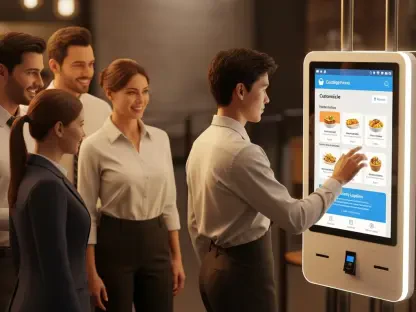I’m thrilled to sit down with Katarina Railko, a renowned hospitality expert whose deep-rooted experience in travel and tourism has made her a respected voice in the industry. With a keen interest in entertainment and events, Katarina has a unique perspective on the transformative power of expos and conferences. Today, we’re diving into the exciting developments surrounding the Arabian Travel Market (ATM) 2026, particularly its new dedicated travel tech show. Our conversation explores the innovative technologies on display, the significance of the event’s forward-looking theme, the global representation of exhibitors, and the role of technology in shaping the future of travel.
Can you tell us what’s behind the decision to launch a dedicated travel tech show at Arabian Travel Market in 2026?
The decision to create a standalone Tech & Innovation Hub at ATM 2026 really stems from the explosive growth of technology in the travel sector. For years, ATM has featured travel tech as part of its broader event, but the industry’s evolution demanded a bigger, more focused platform. Technology isn’t just a side note anymore—it’s the backbone of how travel is planned, experienced, and improved. This dedicated space allows us to showcase cutting-edge solutions and bring together the brightest minds to push boundaries. It’s a natural progression to match the pace of innovation we’re seeing globally.
What types of technologies are you most excited to see showcased at the Tech & Innovation Hub?
I’m really looking forward to the wide array of innovations that will be on display. We’re talking about robotics that could streamline airport operations or hotel services, fintech solutions that make payments seamless for travelers, and green technologies aimed at reducing the carbon footprint of travel. There will also be immersive tech like augmented reality experiences that let attendees virtually explore destinations before booking. It’s all about showing how these tools can transform every step of the travel journey, from inspiration to execution.
How does the theme of ATM 2026, ‘Travel 2040: Driving New Frontiers Through Innovation and Technology,’ resonate with the direction of the travel industry?
This theme is incredibly forward-thinking and captures the essence of where the industry is headed. ‘Travel 2040’ isn’t just about predicting the future; it’s about actively shaping it through innovation. To me, ‘driving new frontiers’ means breaking down barriers—whether that’s through sustainable practices, personalized experiences powered by AI, or entirely new ways of exploring the world. It’s a call to action for the industry to embrace technology as a tool to create more accessible, efficient, and meaningful travel experiences over the next couple of decades.
What can attendees look forward to on the Future Stage during the event?
The Future Stage is going to be a hotspot for thought-provoking discussions. We’ll have tech leaders and futurists diving into topics like how AI can personalize travel or how cybersecurity is critical as more of our journeys go digital. There’s also the Start-up Pitch Battle, which I’m particularly excited about. It’s a chance for emerging companies to showcase their ideas to investors and industry heavyweights. This kind of platform can be a game-changer for startups, giving them visibility and potentially the funding they need to scale their innovations.
With 180 exhibitors from 30 countries, how does ATM Travel Tech aim to bring a global perspective to the table?
The diversity of exhibitors is one of the event’s greatest strengths. Having representation from 30 countries means we’re not just looking at travel tech through a single lens—we’re getting insights from different cultures, economies, and travel needs. I’m thrilled to see how regions like the Middle East, Asia, and Europe will showcase their unique approaches to innovation. This mix fosters richer conversations and sparks ideas that might not emerge in a more homogenous setting. It’s about building a truly global dialogue on the future of travel technology.
What role do major travel tech companies play in an event like this, and how do they impact smaller innovators?
Big players in the travel tech space bring a lot of weight to the event. Their presence not only draws attention but also sets a benchmark for innovation. For smaller innovators and startups, this is a golden opportunity to learn from established companies, network with potential partners, and even collaborate on new projects. These larger firms often have resources and insights that can help scale smaller ideas, while startups bring fresh, agile thinking to the table. It’s a symbiotic relationship that can accelerate progress for everyone involved.
Given the projected growth of the global travel tech market by 2033, how does ATM Travel Tech plan to contribute to this momentum?
ATM Travel Tech is positioned to be a catalyst for that growth. By bringing together creators, investors, and operators under one roof, the event creates a fertile ground for networking and investment. It’s a place where a small startup might find the funding to bring their idea to life, or where a larger company might discover a niche solution to integrate into their offerings. Events like this drive growth by facilitating connections and sparking conversations that lead to real-world impact. I believe ATM Travel Tech will play a significant role in speeding up innovation in the sector.
Technology is now described as central to the travel journey. Can you elaborate on how it’s reshaping the way we travel?
Absolutely. Technology touches every part of the travel experience today. From the moment you start dreaming about a trip—maybe browsing destinations through a virtual reality app—to booking flights with a few clicks, and even navigating a new city with real-time translation tools, it’s all powered by tech. It’s making travel more personalized, efficient, and accessible. For instance, AI can predict your preferences and suggest tailored itineraries, while automation in airports cuts down wait times. It’s not just enhancing the journey; it’s redefining what travel means in a connected world.
What is your forecast for the future of travel technology over the next decade?
I think we’re on the cusp of some truly transformative changes. Over the next ten years, I expect AI to become even more integrated into travel, offering hyper-personalized experiences that anticipate needs before we even articulate them. Sustainability will also be a huge focus, with green tech driving innovations in how we fly, stay, and explore. We might see more widespread adoption of things like biometric security for seamless border crossings or even virtual travel becoming a mainstream alternative for some. The pace of change will be rapid, and events like ATM Travel Tech will be crucial in guiding and inspiring that evolution.









